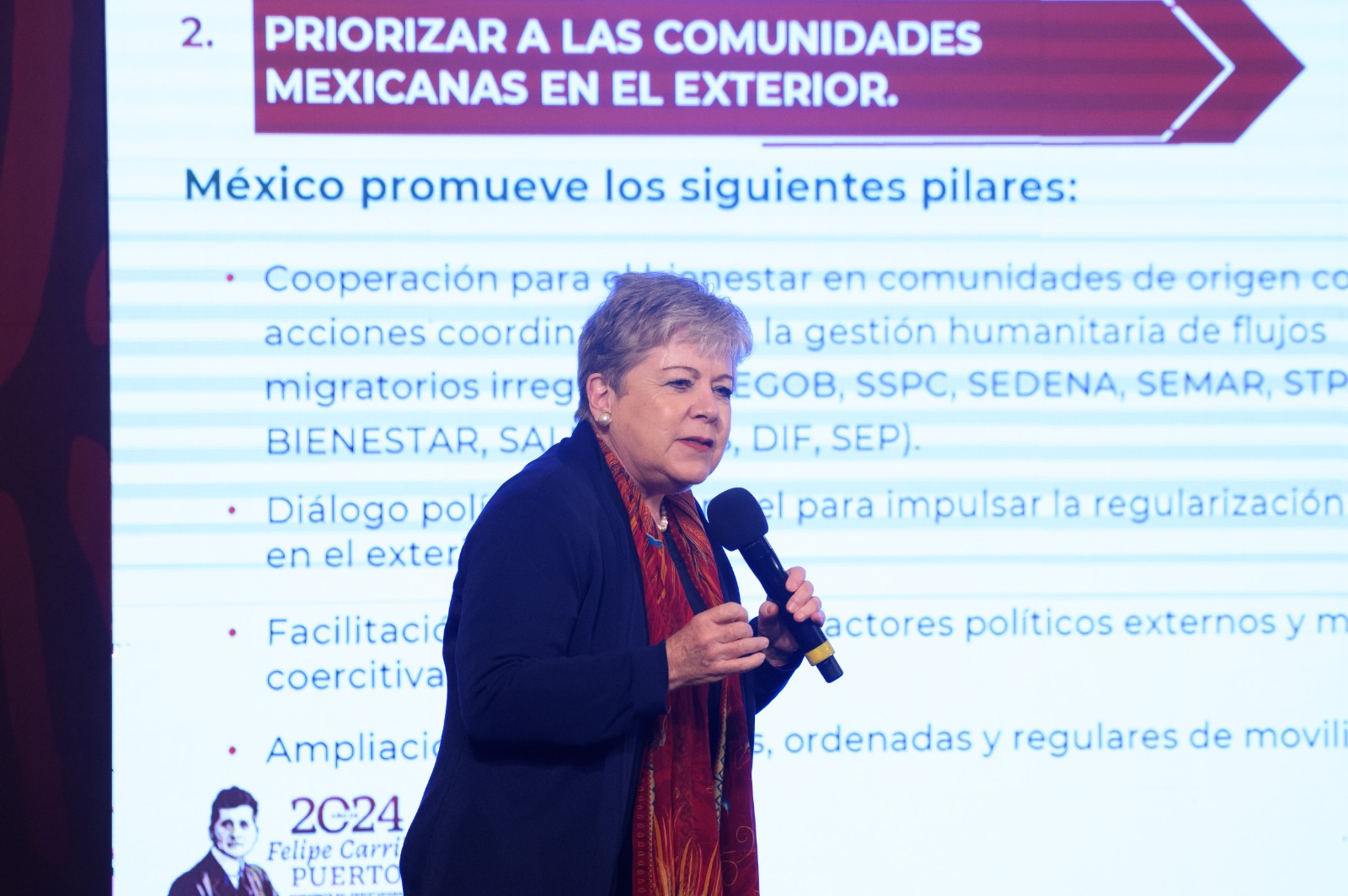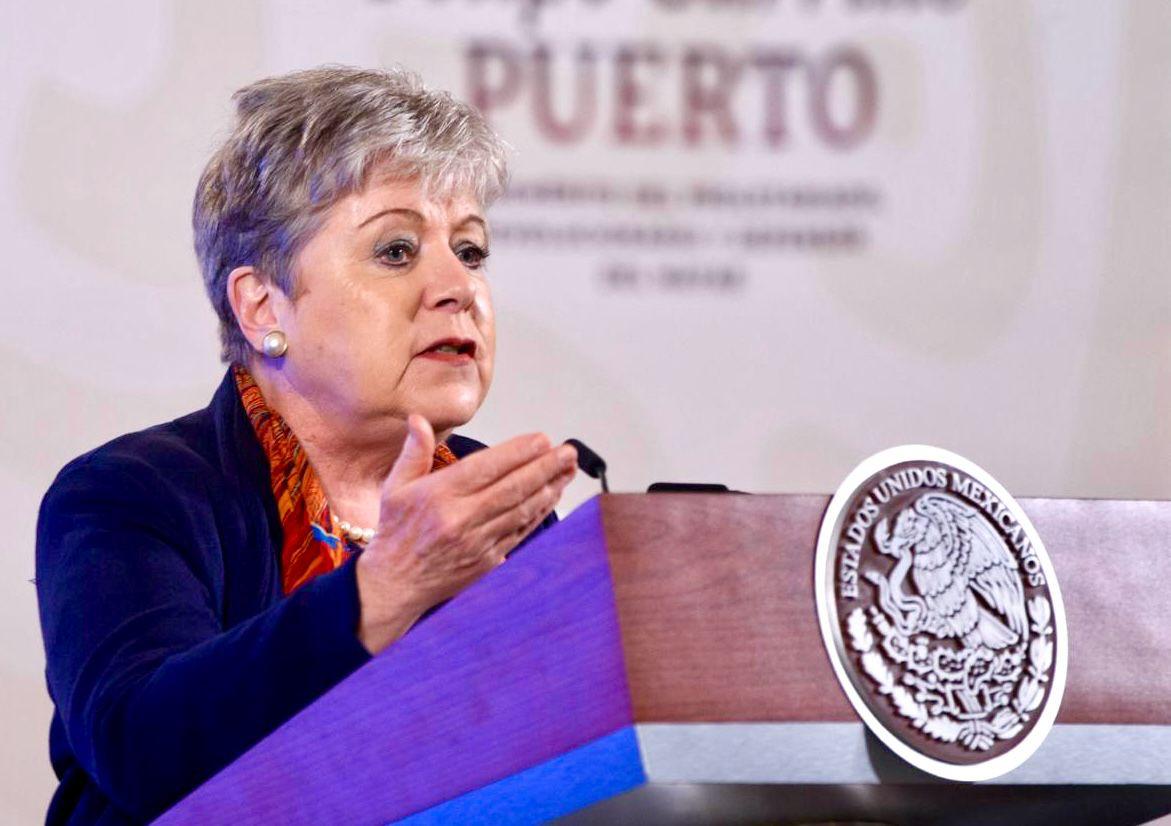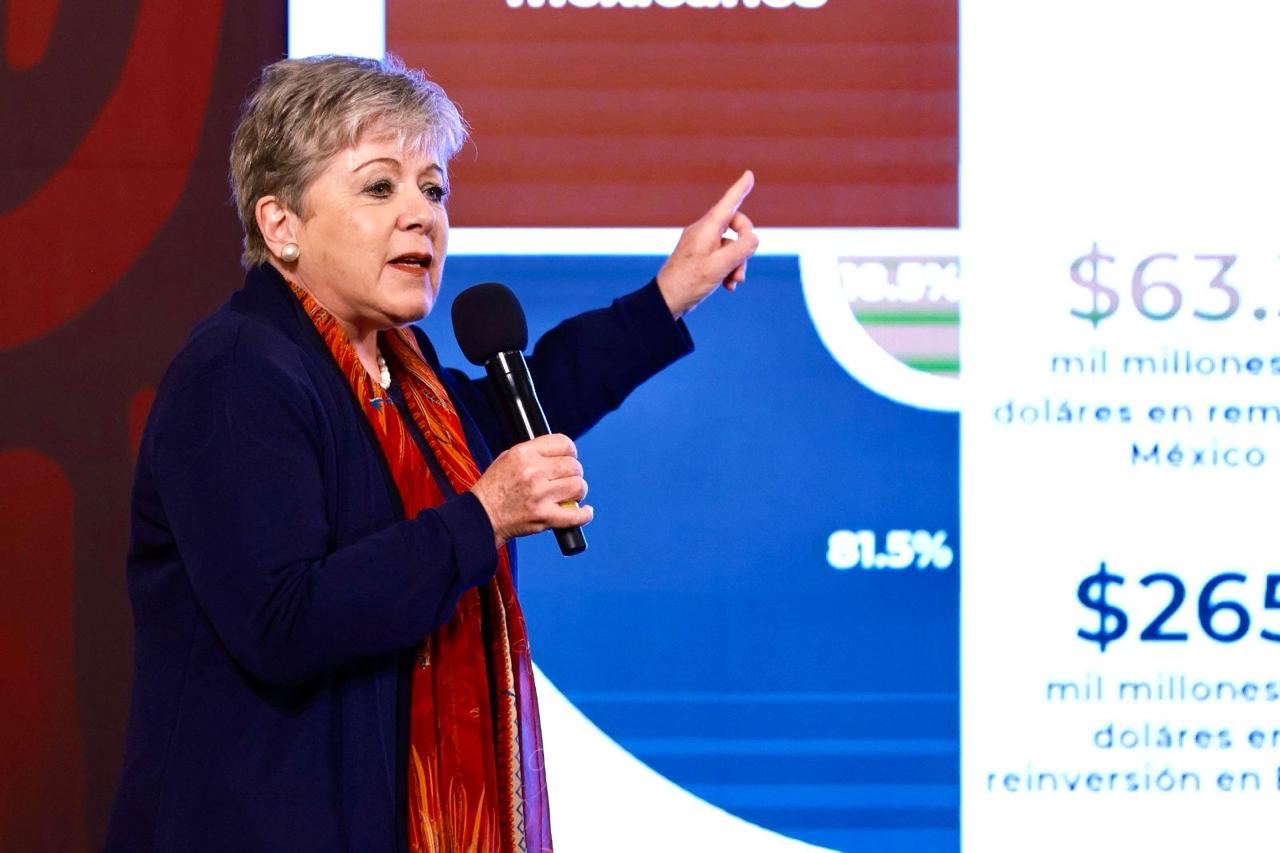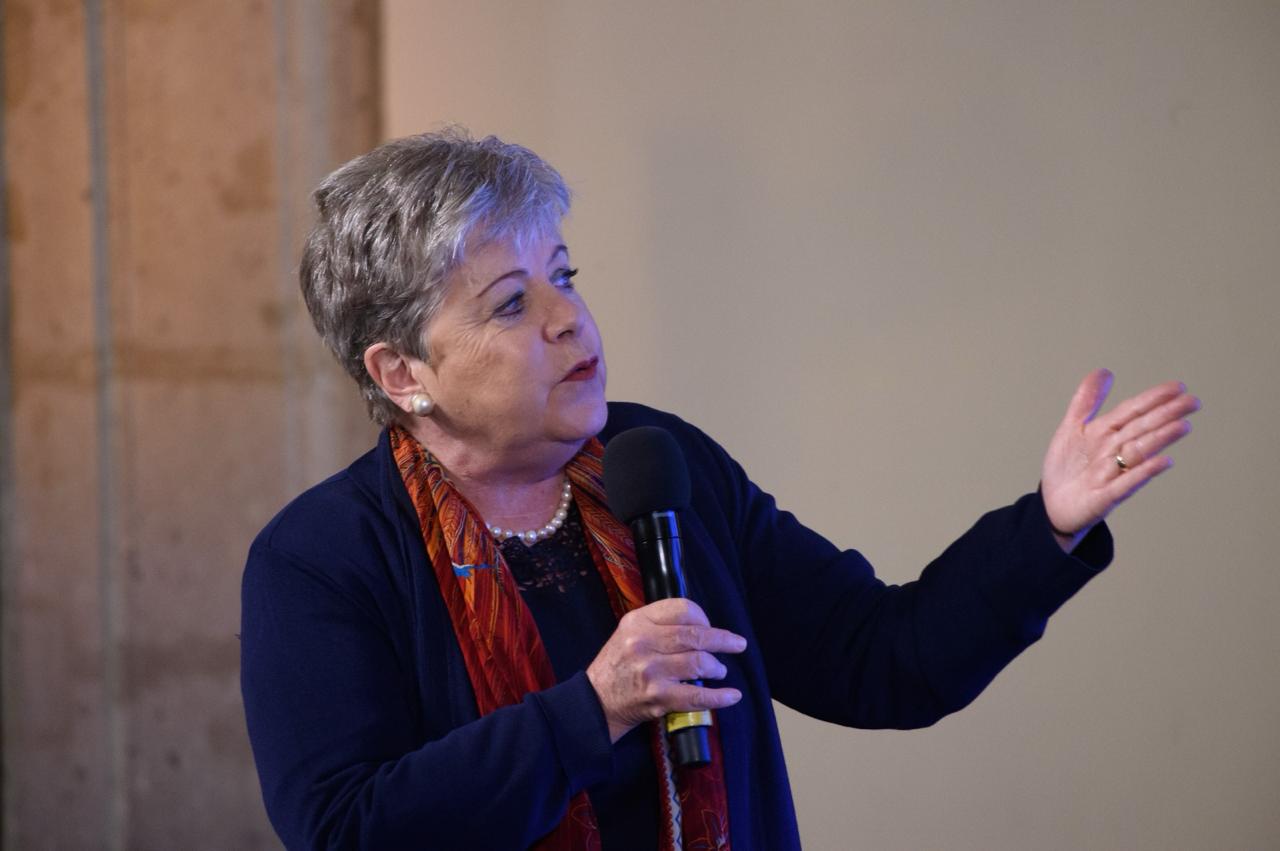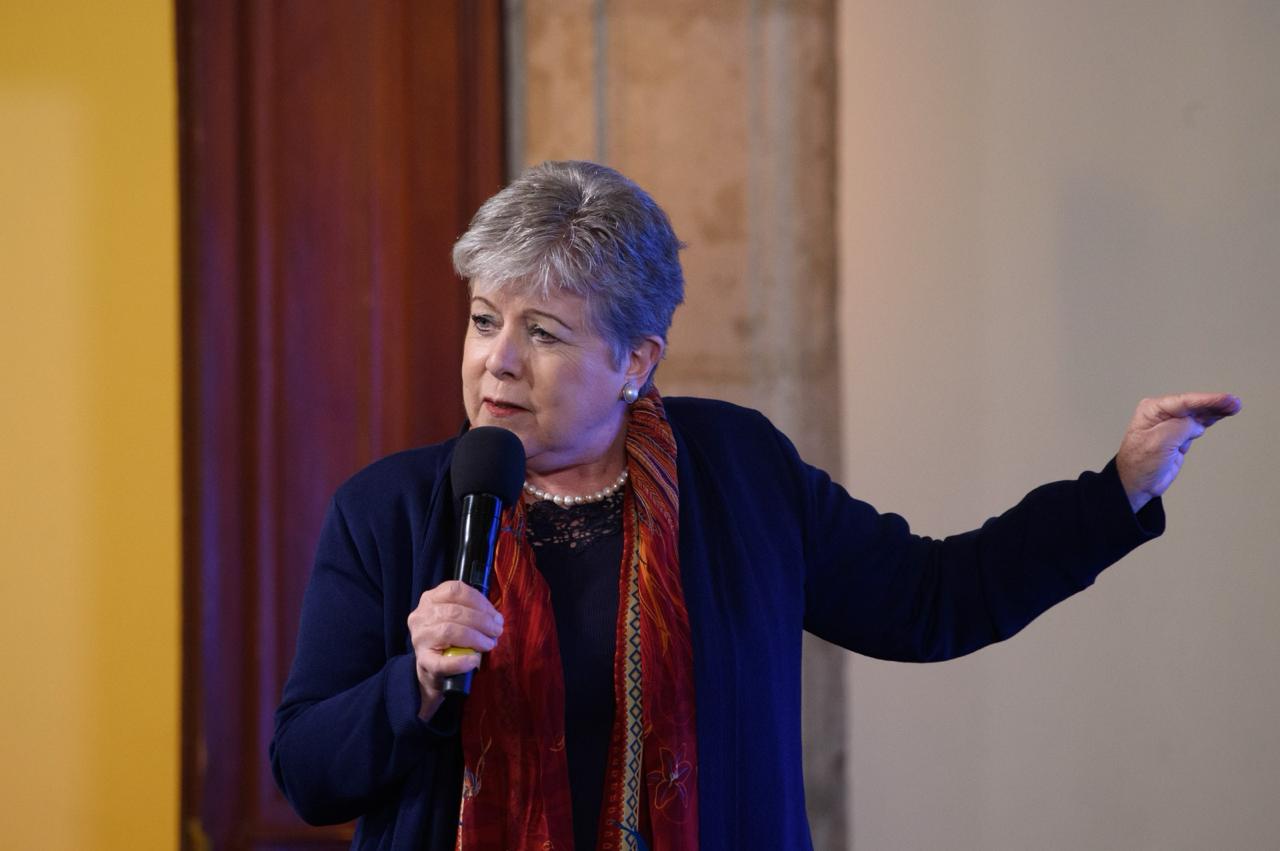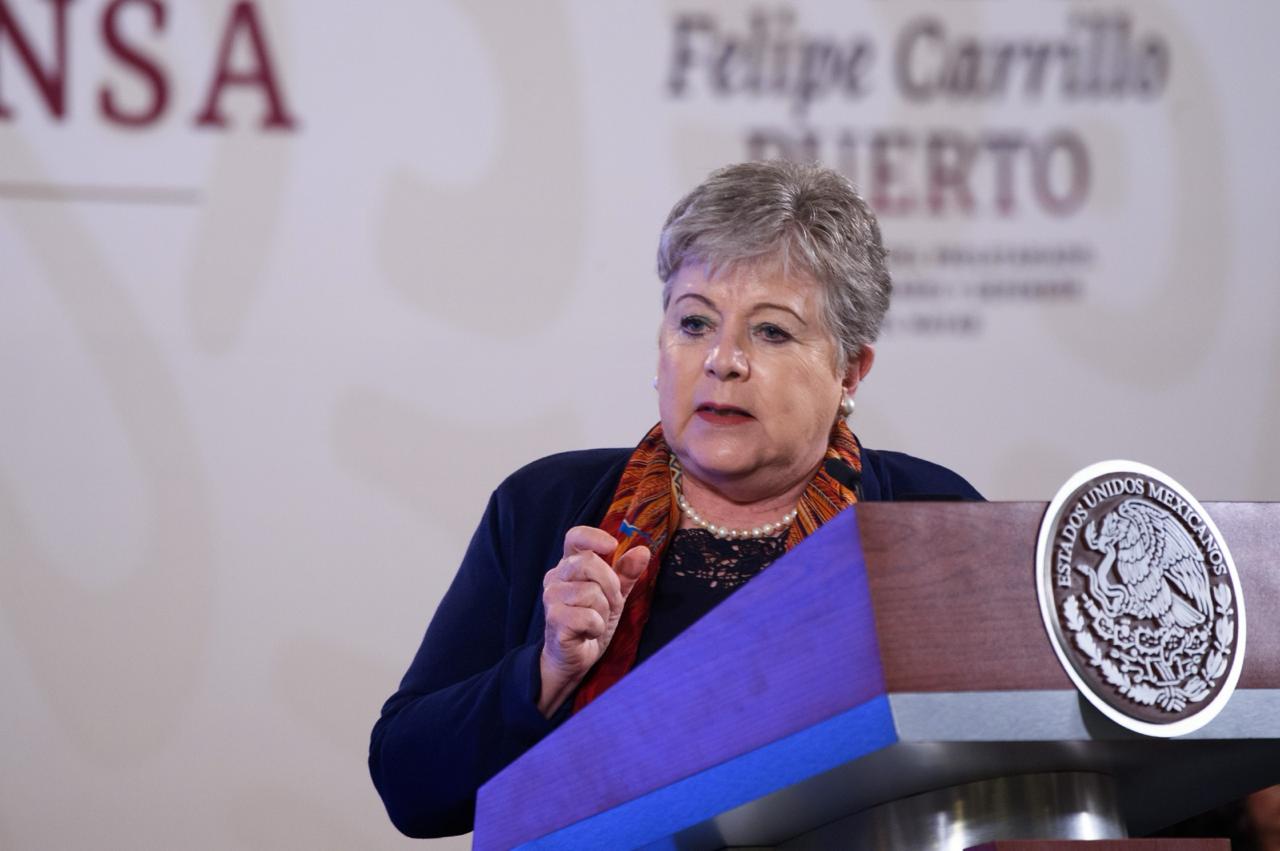At the President’s morning press conference, Secretary of Foreign Affairs Alicia Bárcena Ibarra presented Mexico's human mobility strategy.
The strategy includes all phases of the migration cycle because Mexico is a country of origin, transit, destination and return. The priority is to assist Mexicans abroad, and foreign nationals traveling through Mexico.
Foreign Secretary Bárcena explained that one of the strategy’s pillars is to approach migration from a regional perspective, addressing its structural causes, such as poverty, violence, inequality and climate change.
Therefore, the Mexican Foreign Ministry is working to achieve the wellbeing of the people in the communities of origin. These actions are coordinated through an interministerial commission on migration, which is made up of the Ministries of the Interior, Security, Defense, the Navy, Education, Labor, Welfare and Health, as well as the IMSS and DIF.
"We are addressing the structural causes of migration based on the programs that have been very successful in Mexico: Jóvenes Construyendo el Futuro (Youths Building the Future) and Sembrando Vida (Sowing Life), and we are taking them to the countries that we have determined are the countries that expel the most people as migrants, such as Belize, Cuba, Colombia, Ecuador, El Salvador, Honduras, Haiti and Panama," she explained.
Secretary Alicia Bárcena Ibarra explained that 117 million dollars are being invested in their countries of origin. In addition, when migrants return to their countries, they are given a cooperation package that has benefited 86,000 people.
The Foreign Secretary said that 37.3 million Mexicans live in the United States, mainly in California and Texas. Of these, 26.7 million are second and third generation and 10.6 million were born in Mexico, of which 5.3 million are undocumented. This sector is the central focus for Mexico’s assistance and support.
"The President has carried out a high-level political dialogue to regularize Mexicans abroad, and also to carry out a dialogue on external political factors, which translates into unilateral coercive measures against some countries in the region," she said.
Referring to the challenges faced by the Mexican diaspora and the lack of recognition of their economic contributions to the United States, Secretary Bárcena applauded President López Obrador's efforts with U.S. President Joe Biden.
This effort consists of promoting ten points, among which are the regularization of Mexicans who have lived and worked in the U.S. for more than five years, including DACA recipients; a contribution from the U.S. of 20 billion dollars annually to assist poor countries in Latin America and the Caribbean to stop migration; suspending the sanctions against Venezuela; and lifting blockade against Cuba, among other points to strengthen the economy and reduce migration, all within a framework of cooperation, friendship and respect.
"The regularization of Mexicans is not unprecedented. In 1986, three million Mexicans were regularized. So, what President López Obrador is asking for is an analogous, fair gesture. The Mexican model of human mobility has the goal of defending and protecting Mexicans abroad. They are not alone," concluded Secretary Bárcena Ibarra.
